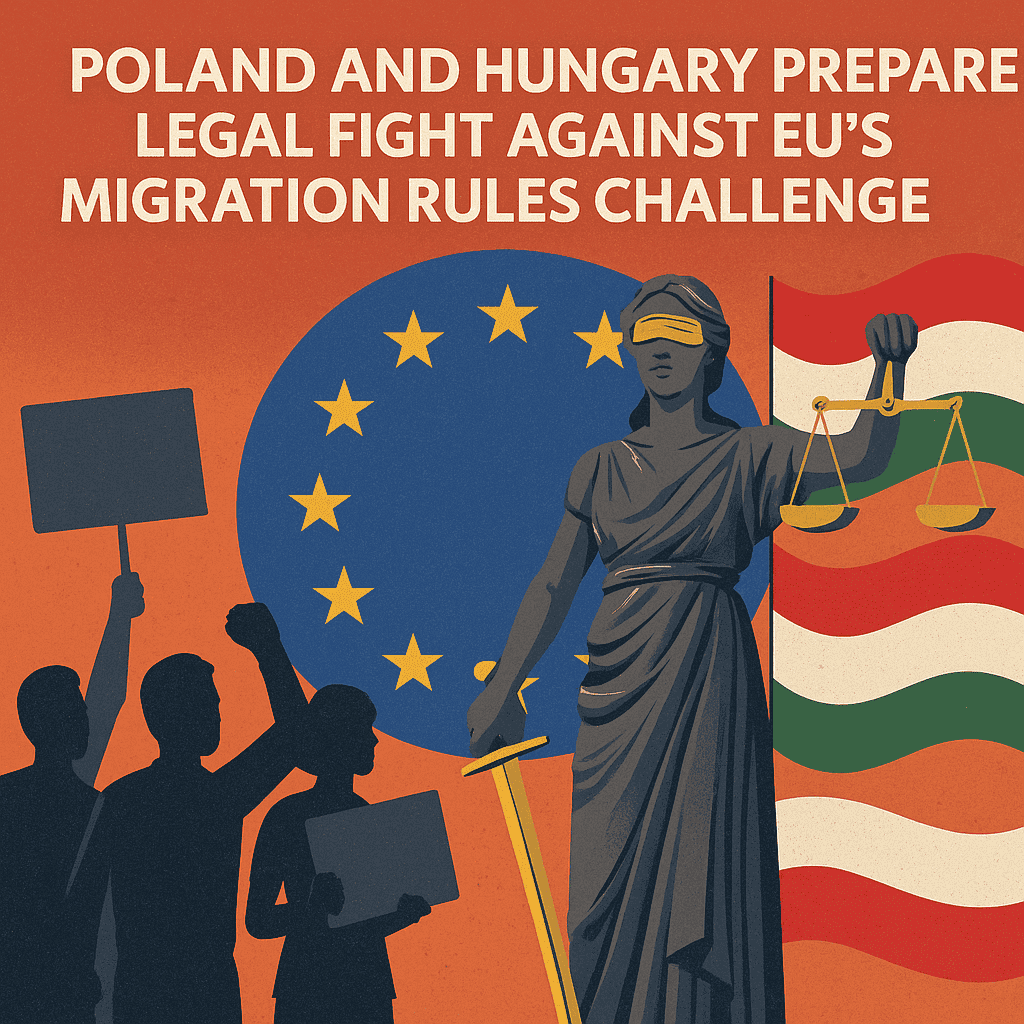Poland and Hungary Prepare Legal Fight Against EU’s Migration Rules Challenge

Poland and Hungary have escalated their challenge to the EU’s migration rules, declaring they will not comply with the new migration and asylum framework. The two governments argue that the system, built around mandatory solidarity, violates national sovereignty and forces countries to accept policies they fundamentally reject.
At the centre of the dispute is the EU’s revamped migration pact, which requires member states to either relocate asylum seekers, pay €20,000 for each person they refuse to take in, or offer operational assistance to frontline countries. Poland and Hungary insist that all three options are unacceptable and have signalled their willingness to contest the legislation in EU courts. Their migration rules challenge now forms the most significant coordinated pushback against the policy since its approval.
Polish Prime Minister Donald Tusk restated Warsaw’s stance in direct terms, confirming that Poland “will not accept migrants under this scheme and will not pay for refusing them.” Hungarian Prime Minister Viktor Orbán echoed the sentiment, saying Hungary will not participate in any mechanism that requires relocation or financial contributions.
The migration rules challenge places the European Commission in a difficult position. Southern states—especially Italy, Greece, and Spain—view the pact as essential to alleviate pressure on their asylum systems, while several central and eastern European states see it as an imposition that disregards national preferences and electoral dynamics.
The initial solidarity pool of 30,000 relocations and €600 million in contributions may not be realised if the opposition bloc expands. Czech and Slovak officials have expressed support for parts of the migration rules challenge, which increases uncertainty around their implementation.
Forward-looking policy options could include:
A revised contribution model linking payments to a state’s actual asylum workload rather than fixed quotas.
A bilateral sponsorship mechanism that allows resistant countries to fund integration programmes in willing host states.
A digital oversight tool publicly tracking compliance to increase political pressure without direct sanctions.
If the migration rules gain further backing, the EU may face fragmented enforcement of one of its most contentious legislative packages, raising questions about unity on future migration governance.
Also Read: Pressure Intensifies on Belgium to Support the Reparations Loan for Ukraine


















































